2021 Biomarkers for Radiation Oncology Awards
The ROI's has selected four research teams to receive Biomarkers for Radiation Oncology Awards in 2021. Your support is helping to fund $300,000 in new grants for projects designed to leverage biomarkers to enhance patient selection, develop personalized treatment regimes, quantify outcomes and manage toxicity.
David Miyamoto, MD, PhD, and his team at the Massachusetts General Hospital will develop a new blood test to detect and analyze circulating tumor cells in patients with muscle-invasive bladder cancer. This non-invasive liquid biopsy test will help identify patients who can be effectively treated with bladder-preserving trimodality therapy, a combination of radiation therapy, chemotherapy, and limited surgery that avoids removing the entire bladder. The test could also be used to monitor patients for recurrences after therapy. Read more.
Nina Sanford, MD, and Wen Jiang, MD, PhD, will be co-Principal Investigators on a project to develop a novel microscale biochip device to monitor disease progression and treatment response in anal cancer. Their innovative technology will be used to capture circulating exosomes and to detect a microRNA specific to anal cancer in patient blood samples before, during and after chemoradiation that would allow for greater personalization of treatment. Dr. Sanford specializes in the care of gastrointestinal (GI) cancers at the University of Texas Southwestern Medical Center and Dr. Jiang studies microfluidic and nanoengineering at MD Anderson Cancer Center. Read more.
Two of this year's grantees are supported through James D. Cox Research Awards, a special recognition for ASTRO Members-in-Training. Their grants are supported by generous gifts made by Ritsuko Komaki-Cox, MD, FASTRO, in honor of her late husband and their shared commitment to training the next generation of radiation oncologists.
Hesham Elhalawani, MD, MSc, a clinical fellow at Brigham and Women’s Hospital, will use radiomics to develop a decision-making tool to help diagnose radiation necrosis (RN) earlier in patients being treated with immunotherapy and stereotactic radiosurgery (SRS) for brain metastases. Along with mentor Ayal Aizer, MD, MHS, Dr. Elhalawani will use artificial intelligence to conduct a longitudinal analysis of MRIs performed before and after SRS to identify imaging biomarkers to predict which patients are most likely to develop RN. Read more.
Sonal Noticewala, MD, MAS, a resident at MD Anderson Cancer Center, will explore the role of the microbiome in how patients with pancreatic cancer respond to neoadjuvant chemoradiation. Together with mentor Cullen Taniguchi, MD, PhD, Dr. Noticewala will examine bacterial profiles in paired tissue samples of pancreatic tumors and peri-tumoral regions to define a signature microbiome associated with patient response to chemoradiation. They aim to show that differences in the microbiome can account for variations in treatment response and lay the groundwork for future studies that target the microbiome to optimize treatment and improve outcomes. Read more.
Learn more about all of the ROI investigators whose research you help make possible.














